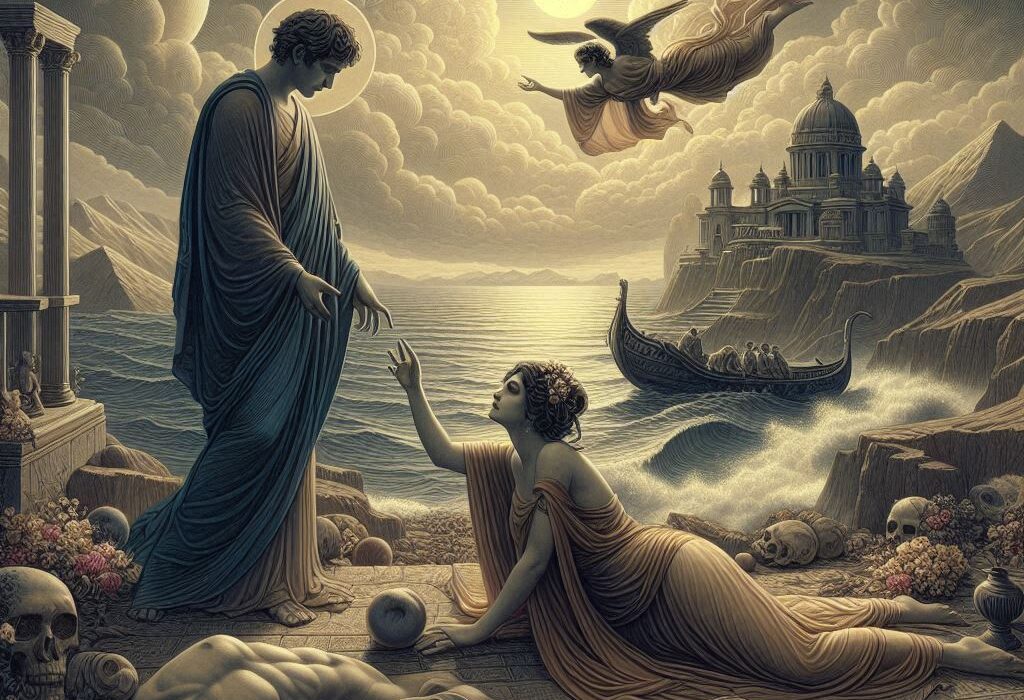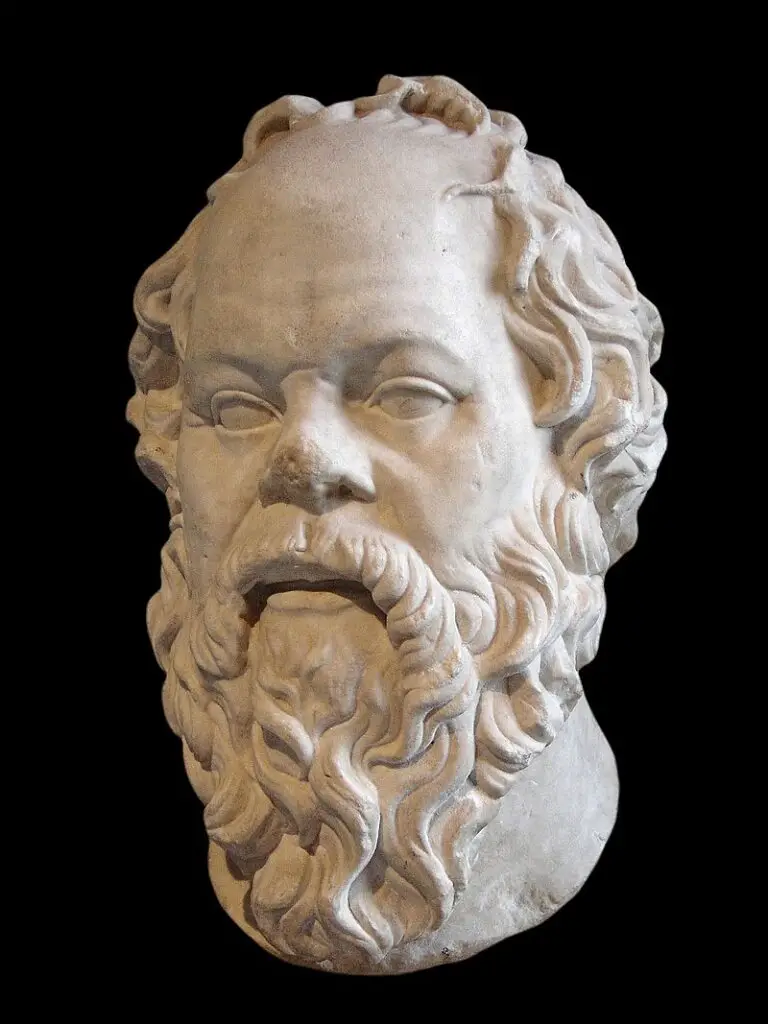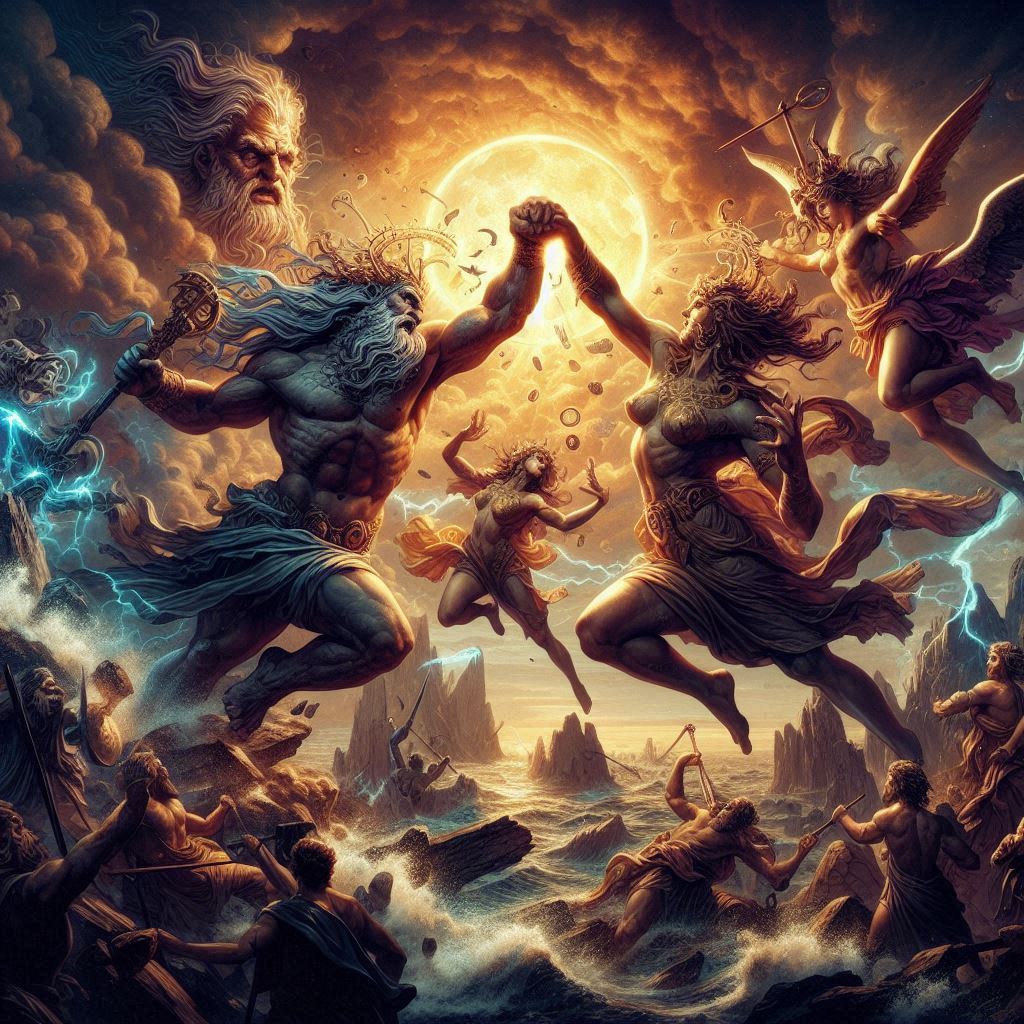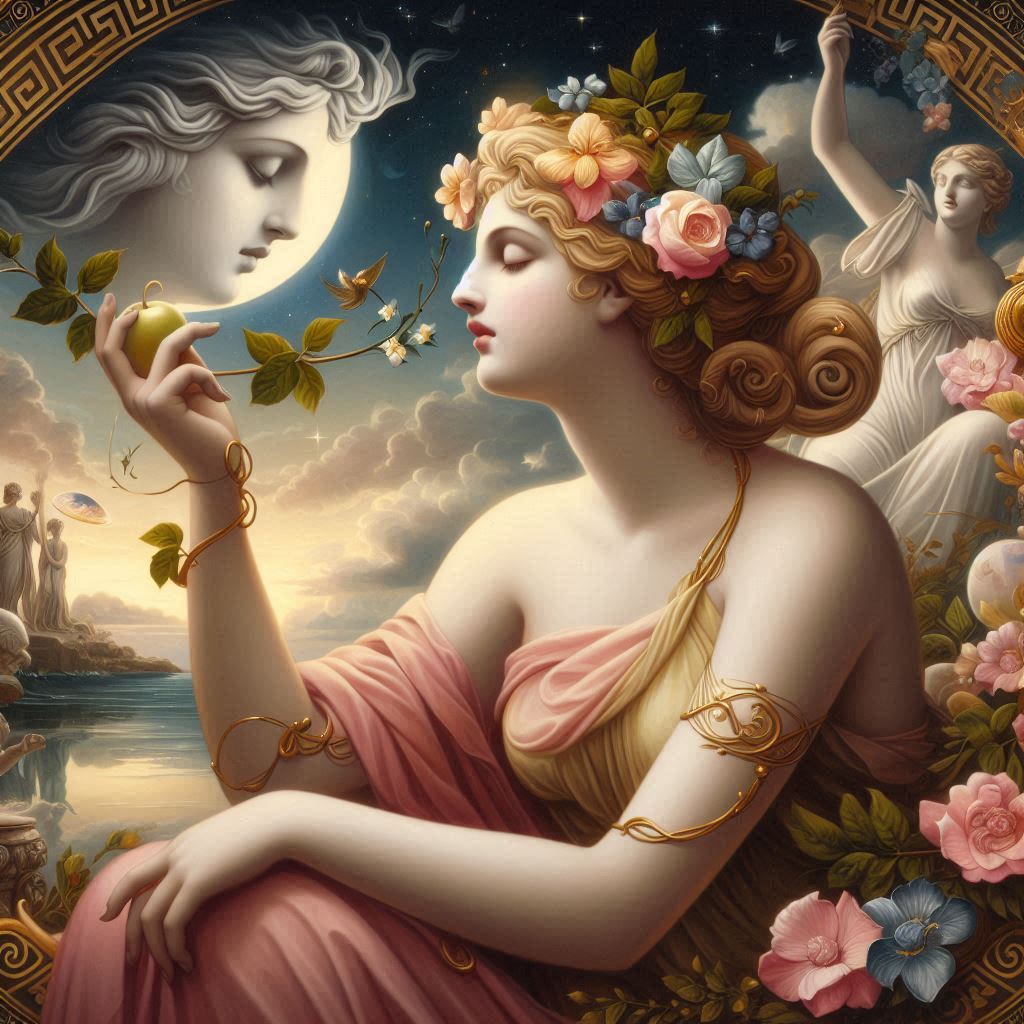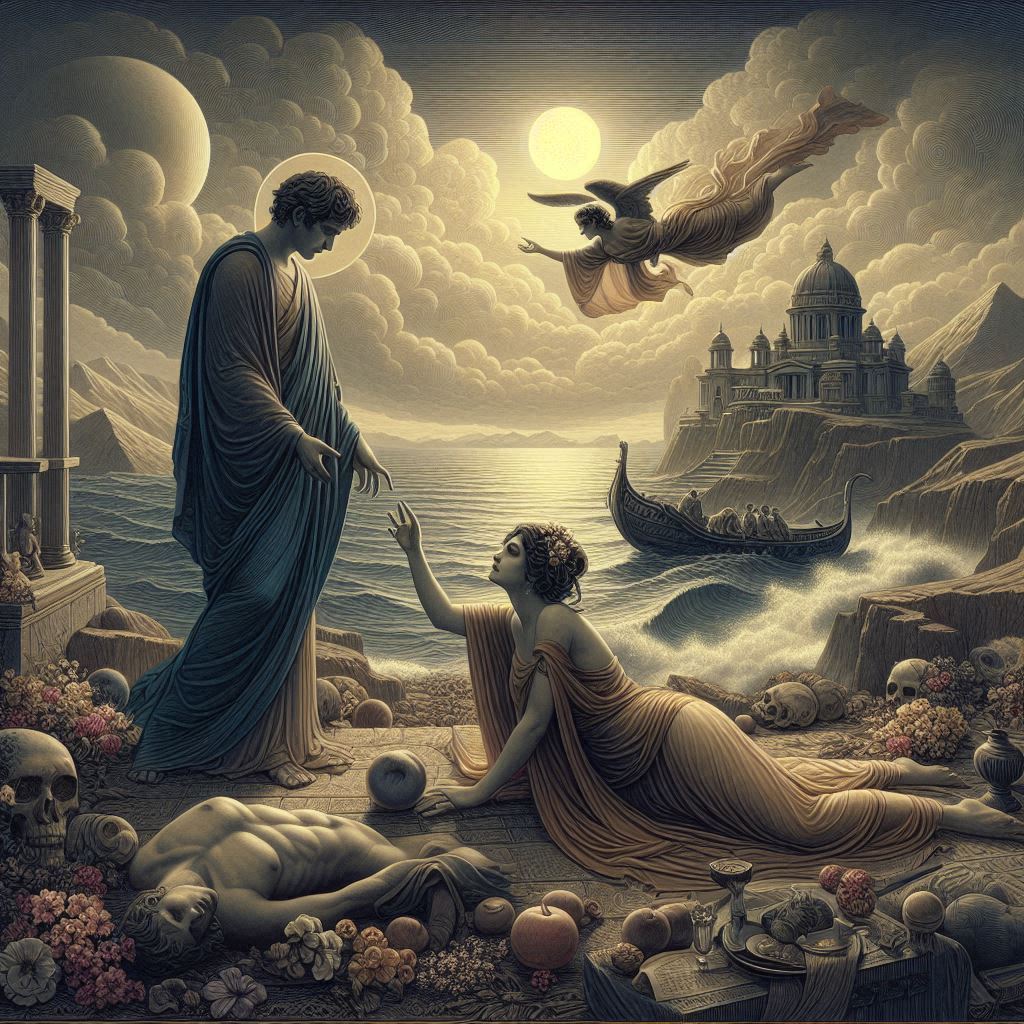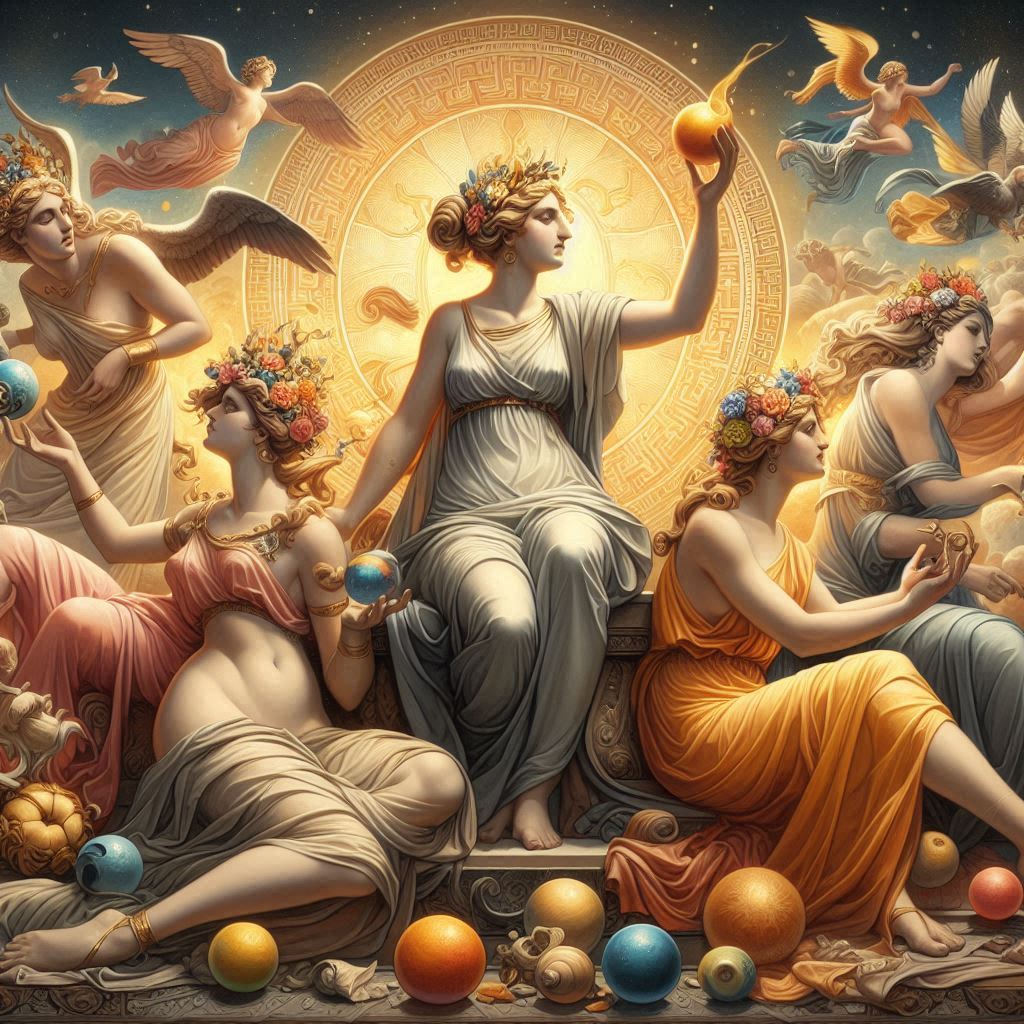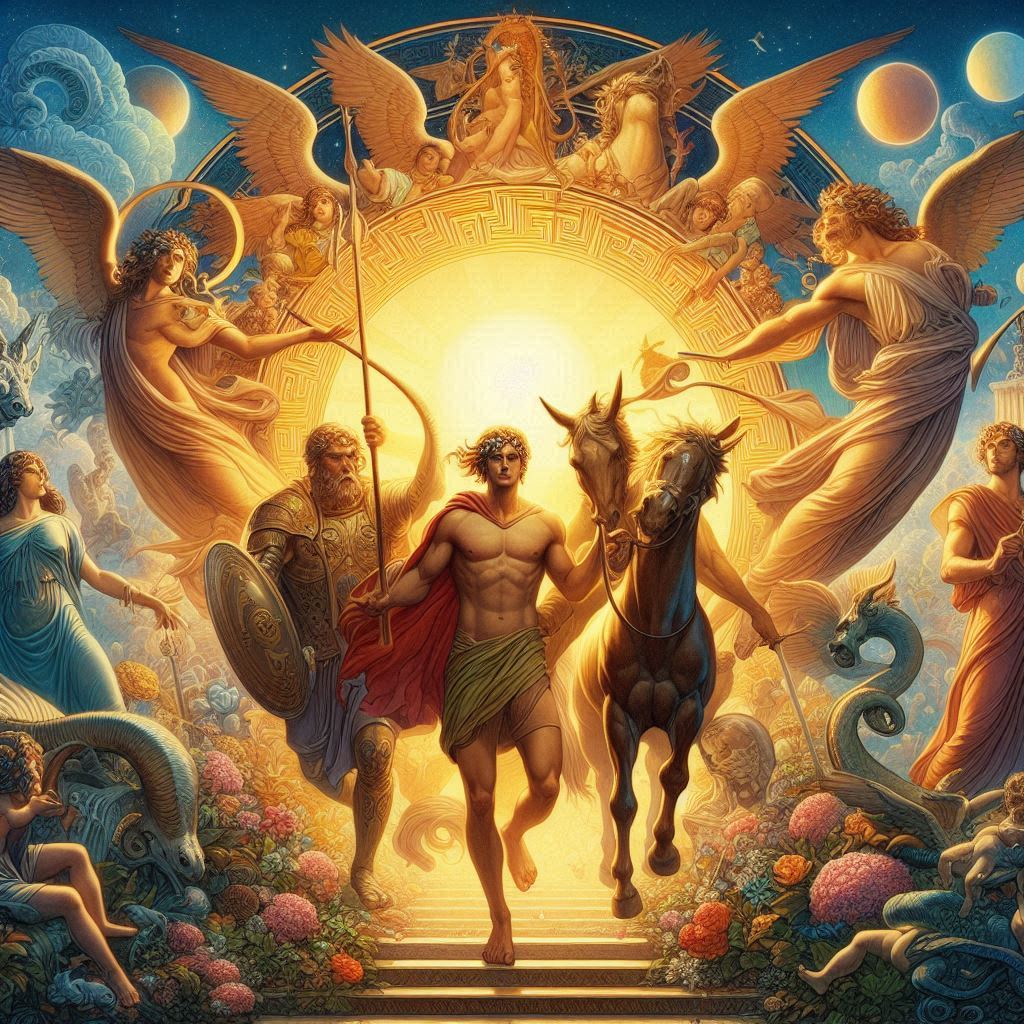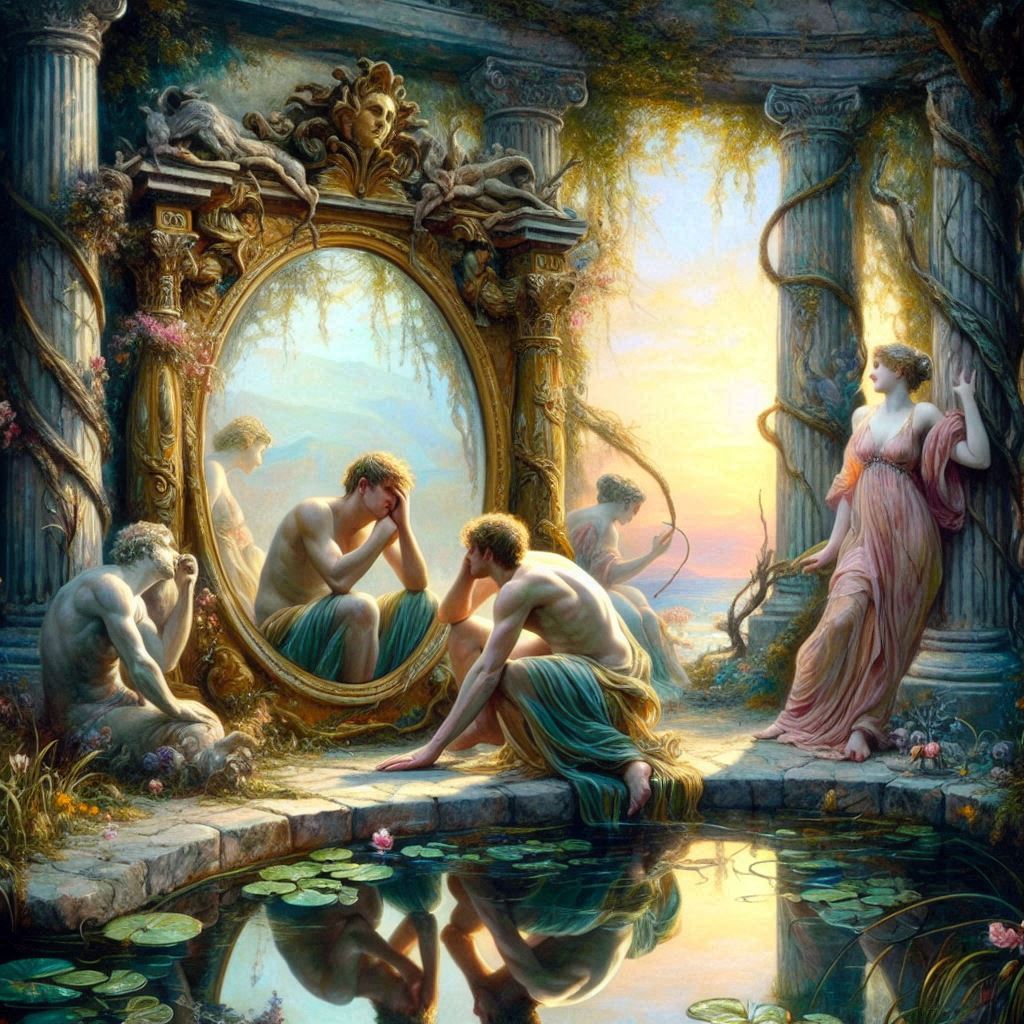The tragic love story of Orpheus and Eurydice is one of the most poignant and enduring tales in Greek mythology, embodying themes of love, loss, grief, and the power of music and art. The myth of Orpheus, the legendary musician and poet, and his beloved Eurydice has captivated audiences for centuries, inspiring countless works of art, literature, and music that explore the depths of human emotion and the eternal quest for love and redemption.
The story of Orpheus and Eurydice begins with their idyllic love and happiness. Orpheus, gifted with unparalleled musical talent inherited from his father Apollo, captivates all who hear his lyre’s enchanting melodies. Eurydice, a beautiful nymph and the object of Orpheus’s affection, reciprocates his love with equal ardor, and the couple’s bond is celebrated as a symbol of perfect harmony and devotion.
However, their happiness is short-lived as tragedy strikes. While wandering in the woods, Eurydice is pursued by Aristaeus, a shepherd and son of Apollo, who becomes enamored with her beauty. In her attempt to escape, Eurydice steps on a venomous snake hidden in the underbrush and suffers a fatal bite. Despite Orpheus’s desperate efforts to save her, Eurydice succumbs to the serpent’s venom and dies, leaving Orpheus consumed by grief and despair.
Orpheus, devastated by the loss of his beloved, descends into the depths of Hades, the realm of the dead, determined to reclaim Eurydice from the clutches of death. Armed only with his lyre and his hauntingly beautiful voice, Orpheus charms and soothes the denizens of the underworld, including the ferryman Charon and the three-headed dog Cerberus, with his music and poetry.
Moved by Orpheus’s sorrowful lamentations and heartfelt pleas, Hades and Persephone, the rulers of the underworld, grant Orpheus an opportunity to reunite with Eurydice under one condition: he must lead her back to the land of the living without looking back until they have reached the surface. If he looks back at Eurydice before they emerge into the sunlight, she will be lost to him forever.
Orpheus, filled with hope and determination, begins the arduous journey back to the surface, guided by the faint footsteps of Eurydice behind him. As they ascend from the underworld’s darkness toward the light of the living world, Orpheus is tormented by doubt, fear, and longing. The temptation to glance back at Eurydice, to reassure himself of her presence, becomes unbearable.
In a moment of weakness and uncertainty, Orpheus succumbs to his doubts and looks back at Eurydice, breaking the pact with Hades and Persephone. In that instant, Eurydice is whisked back into the shadows of the underworld, lost to Orpheus forever. The anguish and despair of Orpheus’s loss are palpable, as he realizes the irreversible consequences of his actions and the futility of his quest.
The myth of Orpheus and Eurydice resonates with themes of love’s fragility, the inevitability of death, and the human condition’s inherent flaws and weaknesses. Orpheus’s tragic flaw, his inability to trust and have faith in the unseen, leads to the ultimate loss of his beloved Eurydice, despite his immense talent, devotion, and determination.
The myth of Orpheus and Eurydice has inspired numerous interpretations, adaptations, and retellings in art, literature, and music across cultures and centuries. From ancient Greek poetry and drama to Renaissance paintings, operas, ballets, and contemporary works, the story’s timeless themes of love, loss, and the power of art to transcend mortality continue to resonate with audiences worldwide.
In the realm of music, Orpheus’s legacy as a master musician and poet is celebrated in countless compositions that pay homage to his mythic journey and tragic love. Operas such as Christoph Willibald Gluck’s “Orfeo ed Euridice,” Jacopo Peri’s “Euridice,” and Claudio Monteverdi’s “L’Orfeo” bring the myth to life through stirring arias, choruses, and orchestral music that evoke the depths of Orpheus’s sorrow and longing.
In literature, the myth of Orpheus and Eurydice has been retold and reimagined by writers such as Ovid, Virgil, Rainer Maria Rilke, Jean Anouilh, and Tennessee Williams, each adding their unique perspectives and interpretations to the timeless tale of love and loss. The story’s enduring appeal lies in its exploration of universal themes and emotions that resonate with audiences of all ages and backgrounds.
The myth of Orpheus and Eurydice also holds symbolic significance beyond its narrative elements. Orpheus, with his music and artistry, represents the transformative power of creativity, imagination, and expression in the face of adversity and tragedy. His journey into the underworld and his attempt to rescue Eurydice symbolize the human quest for meaning, transcendence, and the longing for eternal love and reunion.
Eurydice, in turn, embodies the ephemeral nature of beauty, life, and love, as well as the inevitability of mortality and loss. Her tragic fate serves as a reminder of love’s vulnerability and the fragile balance between hope and despair that defines the human experience.
Ultimately, the myth of Orpheus and Eurydice endures as a timeless testament to the complexities of love, grief, and the enduring power of art and music to transcend the boundaries of mortality. Orpheus’s lament, Eurydice’s fate, and the eternal longing for reunion resonate with audiences across cultures and generations, offering solace, reflection, and a deeper understanding of the human heart’s capacity for love and sorrow.
